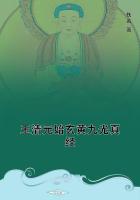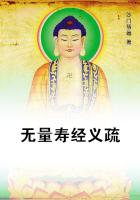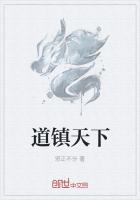Defence was useless; explanation was vain; one could only let the passion exhaust itself. One's best friends were as unreasonable as enemies, for the belief in poor Mr. Lincoln's brutality and Seward's ferocity became a dogma of popular faith. The last time Henry Adams saw Thackeray, before his sudden death at Christmas in 1863, was in entering the house of Sir Henry Holland for an evening reception. Thackeray was pulling on his coat downstairs, laughing because, in his usual blind way, he had stumbled into the wrong house and not found it out till he shook hands with old Sir Henry, whom he knew very well, but who was not the host he expected. Then his tone changed as he spoke of his -- and Adams's -- friend, Mrs. Frank Hampton, of South Carolina, whom he had loved as Sally Baxter and painted as Ethel Newcome. Though he had never quite forgiven her marriage, his warmth of feeling revived when he heard that she had died of consumption at Columbia while her parents and sister were refused permission to pass through the lines to see her. In speaking of it, Thackeray's voice trembled and his eyes filled with tears. The coarse cruelty of Lincoln and his hirelings was notorious. He never doubted that the Federals made a business of harrowing the tenderest feelings of women -- particularly of women -- in order to punish their opponents. On quite insufficient evidence he burst into violent reproach. Had Adams carried in his pocket the proofs that the reproach was unjust, he would have gained nothing by showing them. At that moment Thackeray, and all London society with him, needed the nervous relief of expressing emotion; for if Mr. Lincoln was not what they said he -- was what were they?
For like reason, the members of the Legation kept silence, even in private, under the boorish Scotch jibes of Carlyle. If Carlyle was wrong, his diatribes would give his true measure, and this measure would be a low one, for Carlyle was not likely to be more sincere or more sound in one thought than in another. The proof that a philosopher does not know what he is talking about is apt to sadden his followers before it reacts on himself. Demolition of one's idols is painful, and Carlyle had been an idol. Doubts cast on his stature spread far into general darkness like shadows of a setting sun. Not merely the idols fell, but also the habit of faith. If Carlyle, too, was a fraud, what were his scholars and school?
Society as a rule was civil, and one had no more reason to complain than every other diplomatist has had, in like conditions, but one's few friends in society were mere ornament. The Legation could not dream of contesting social control. The best they could do was to escape mortification, and by this time their relations were good enough to save the Minister's family from that annoyance. Now and then, the fact could not be wholly disguised that some one had refused to meet -- or to receive -- the Minister; but never an open insult, or any expression of which the Minister had to take notice. Diplomacy served as a buffer in times of irritation, and no diplomat who knew his business fretted at what every diplomat -- and none more commonly than the English -- had to expect; therefore Henry Adams, though not a diplomat and wholly unprotected, went his way peacefully enough, seeing clearly that society cared little to make his acquaintance, but seeing also no reason why society should discover charms in him of which he was himself unconscious. He went where he was asked; he was always courteously received; he was, on the whole, better treated than at Washington; and he held his tongue.
For a thousand reasons, the best diplomatic house in London was Lord Palmerston's, while Lord John Russell's was one of the worst. Of neither host could a private secretary expect to know anything. He might as well have expected to know the Grand Lama. Personally Lord Palmerston was the last man in London that a cautious private secretary wanted to know. Other Prime Ministers may perhaps have lived who inspired among diplomatists as much distrust as Palmerston, and yet between Palmerston's word and Russell's word, one hesitated to decide, and gave years of education to deciding, whether either could be trusted, or how far. The Queen herself in her famous memorandum of August 12, 1850, gave her opinion of Palmerston in words that differed little from words used by Lord John Russell, and both the Queen and Russell said in substance only what Cobden and Bright said in private. Every diplomatist agreed with them, yet the diplomatic standard of trust seemed to be other than the parliamentarian No professional diplomatists worried about falsehoods. Words were with them forms of expression which varied with individuals, but falsehood was more or less necessary to all.
The worst liars were the candid. What diplomatists wanted to know was the motive that lay beyond the expression. In the case of Palmerston they were unanimous in warning new colleagues that they might expect to be sacrificed by him to any momentary personal object. Every new Minister or Ambassador at the Court of St. James received this preliminary lesson that he must, if possible, keep out of Palmerston's reach. The rule was not secret or merely diplomatic. The Queen herself had emphatically expressed the same opinion officially. If Palmerston had an object to gain, he would go down to the House of Commons and betray or misrepresent a foreign Minister, without concern for his victim. No one got back on him with a blow equally mischievous -- not even the Queen -- for, as old Baron Brunnow described him: "C'est une peau de rhinocère!" Having gained his point, he laughed, and his public laughed with him, for the usual British -- or American -- public likes to be amused, and thought it very amusing to see these beribboned and bestarred foreigners caught and tossed and gored on the horns of this jovial, slashing, devil-may-care British bull.

